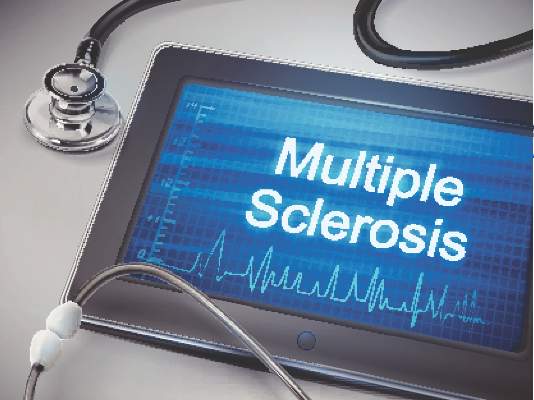AT THE APA ANNUAL MEETING
ATLANTA (FRONTLINE MEDICAL NEWS) – Nearly half of 2,100 multiple sclerosis (MS) patients enrolled at baseline in the Sonya Slifka Longitudinal Multiple Sclerosis Study reported experiencing emotional distress, and 9% of those patients reported difficulties with accessing mental health services.
Younger patients, those with more recently diagnosed illness, and those with more frequent MS relapses were more likely to experience emotional distress, Dr. Laura Safar of Brigham and Women’s Hospital, Boston, said at the annual meeting of the American Psychiatric Association.
The Sonya Slifka study was an 8-year population-based cohort study that, at last report, included more than 4,000 MS patients from across the United States, with varying disease duration. Dr. Safar reported on baseline mental health data from the study.
Patients with MS may experience symptoms involving any part of the central nervous system, including psychiatric symptoms such as depression, anxiety, and cognitive disorders, she said, noting that these are highly prevalent, but often go unrecognized and untreated by primary care doctors and neurologists.
Prior studies have suggested that depression occurs in 25%-80% of patients, depending on the study setting. The rates are higher in those with MS than in the general population or in those with other neurologic and chronic medical conditions, she said.
In the Sonya Slifka study, 77% of patients were women with an average age of 50 years and disease duration ranging from 1 week to 64 years. Most were white. The disease distribution was representative of that seen in the general MS population, with most (57%) having relapsing-remitting disease, 25% having secondary progressive disease, and the remaining patients having primary progressive disease or progressing-relapsing disease ( Mult Scler. 2006 Feb;12[1]:24-38 ).
Reported disability levels varied from none/very mild to severe and requiring a wheelchair or scooter or being bedridden.
Of the 48% of patients reporting emotional distress, most reported having mild to moderate distress, but 40% reported severe distress.
Nearly half (46%) of patients reported accomplishing less than normal because of emotional difficulties, and 31% said they worked less carefully than usual.
Emotional distress was more common in patients who were younger, divorced or never married, unemployed, and in those with lower education and income levels. Emotional distress was associated with shorter duration of illness, with having multiple relapses in the prior year (highest rates were among those with five or more relapses), and with moderate disability level.
Emotional distress was also associated with poorer perceived general health, and those with higher levels of emotional distress tended to experience all or many of the symptoms on the baseline questionnaire.
Further, those with emotional distress tended to lack health insurance and to have problems accessing health care and necessary prescription medications. About one-fourth of the patients had seen a mental health professional in the prior year and nearly 8% wanted to; 2% said they had been referred to a mental health professional, and 93% of these patients had emotional distress, including 6% with severe distress.
Reasons given by these patients for not seeing a mental health professional were cost, difficulty getting an appointment, and too long of a wait.
The findings suggest that in clinical settings it is important to screen MS patients for emotional distress and depression and to treat or refer accordingly, Dr. Safar said.
“As we know from other medical illnesses, this will improve adherence to MS treatment and will improve the prognosis,” she added.
Dr. Safar reported having no disclosures.






